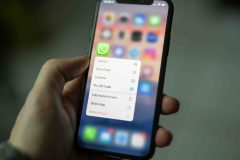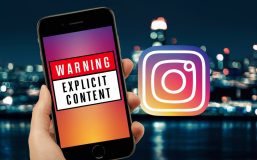
Google’s long-running fight to digitize the world’s written works has closed two more chapters, but the story hasn’t quite reached the end. Despite stakes that include millions of dollars of ad revenue for Google versus the potential loss of revenue and royalties for publishers and authors, however, the epic saga’s climax is turning out to be surprisingly muted.
There are three parts to this story so far, with Google Books the protagonist (or antagonist, depending on your point of view) at the center of all of them. Following two separate court decisions this week and last, two of those parts are now concluded, leaving only one more thread of the tale to wrap up.
Part The First: Google Vs. Publishers
Last week, the long-running lawsuit between Google and the Association of American Publishers that the AAP launched in 2005 was settled. Under its terms, “[t]he settlement acknowledges the rights and interests of copyright-holders. US publishers can choose to make available or choose to remove their books and journals digitized by Google for its Library Project. Those deciding not to remove their works will have the option to receive a digital copy for their use.”
If this sounds a little familiar, it is important to note that these are pretty much the same opt-out terms that Google offered the AAP when this suit started almost exactly seven years ago. So why the seemingly endless fight? Because seven years ago the e-book market was very young and the publishers were in freak-out mode.
“[Publishers] invested a ton of time and money fighting something that they realize now really isn’t a problem,” Jonathan Band, a Washington lawyer and library consultant, told Publishers Weekly. “And it didn’t preclude the development of a robust e-book market.”
In Band’s opinion, the members of the AAP involved in the original lawsuit may not have liked Google’s assertion of control over their works, but the chance to make money from sales of books directly linked to Google’s display of 20% of the book’s content was too great to ignore.
Part The Second: Authors vs. Universities
Settlement was not a reason why the second part of Google’s current fight was ended this week: In this case Federal Judge Harold Baer flatly dismissed a copyright infringement lawsuit brought by the Author’s Guild against several universities who were working with Google to scan and post books in a joint trust operated by the University of Michigan, known as the HathiTrust Digital Library.
The Guild’s suit charged that the schools and Google were ripping off copyrighted works, which, according to the judge’s ruling, made up about 73% of the 10 million digital volumes in the HathiTrust library. Judge Baer ultimately disagreed, indicating that for the purposes of the project, such as book preservation, full-text searching and providing access to anyone with a print disability, it all fell under fair use.
“I cannot imagine a definition of fair use that would not encompass the transformative uses made by Defendants’ [Mass Digitization Project] and would require that I terminate this invaluable contribution to the progress of science and cultivation of the arts that at the same time effectuates the ideals espoused by the [Americans with Disabilities Act],” Baer wrote.
Google didn’t entirely get a free pass, though. By the rules of the trust itself, only those works in the public domain can have full-text searching. The rights holders of all the other works will have to provide their explicit approval for such searches.
Nevertheless, the Author’s Guild, as one would expect, is none too pleased.
“We disagree with nearly every aspect of the court’s ruling. We’re especially disappointed that the court refused to address the universities’ ‘orphan works’ program, which defendants have repeatedly promised to revive,” according to a statement from the Guild.
The orphaned works the Guild refers to are those works where the author of the work can’t be found. The Guild is very concerned that the rights of those authors are going to be trampled when the member universities start releasing their content.
“The so-called orphan works program was quickly shown to be a haphazard mess, prompting Michigan to suspend it,” said Paul Aiken, the Guild’s executive director. “But the temptation to find reasons to release these digitized books clearly remains strong, and the university has consistently pledged to reinstate the orphan works program. The court’s decision leaves authors around the world at risk of having their literary works distributed without legal authority or oversight.”
Part The Third: Authors vs. Google
The Guild still has one big gun still in play: the Guild’s lawsuit against Google itself.
That lawsuit is currently held up in appeals, with the Appellate court trying to determine whether or not the Guild’s suit qualifies as a class action suit.
Based on a proposed settlement that was rejected last year by the judge in that case, orphaned works are the biggest points of contention in that trial as well. In the proposed deal, Google would have taken 33% of the revenue of sales from digitized works, with the rights holders getting the rest. But Federal Judge Danny Chin killed the settlement, indicating that neither the Guild or Google could lay claim to the rights of orphaned works.
Once the decision on class-action status is made, the Guild’s suit against Google will proceed, unless the two parties can work out a better settlement on their own. How this part of the story will end remains a mystery, but for now it appears Google is going to get more content to share with the world, with some money-making ads placed in the searches for books for its trouble.
Image courtesy of Rob Wilson/Shutterstock.









